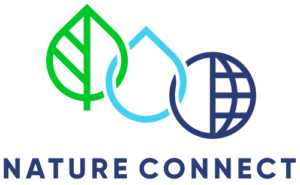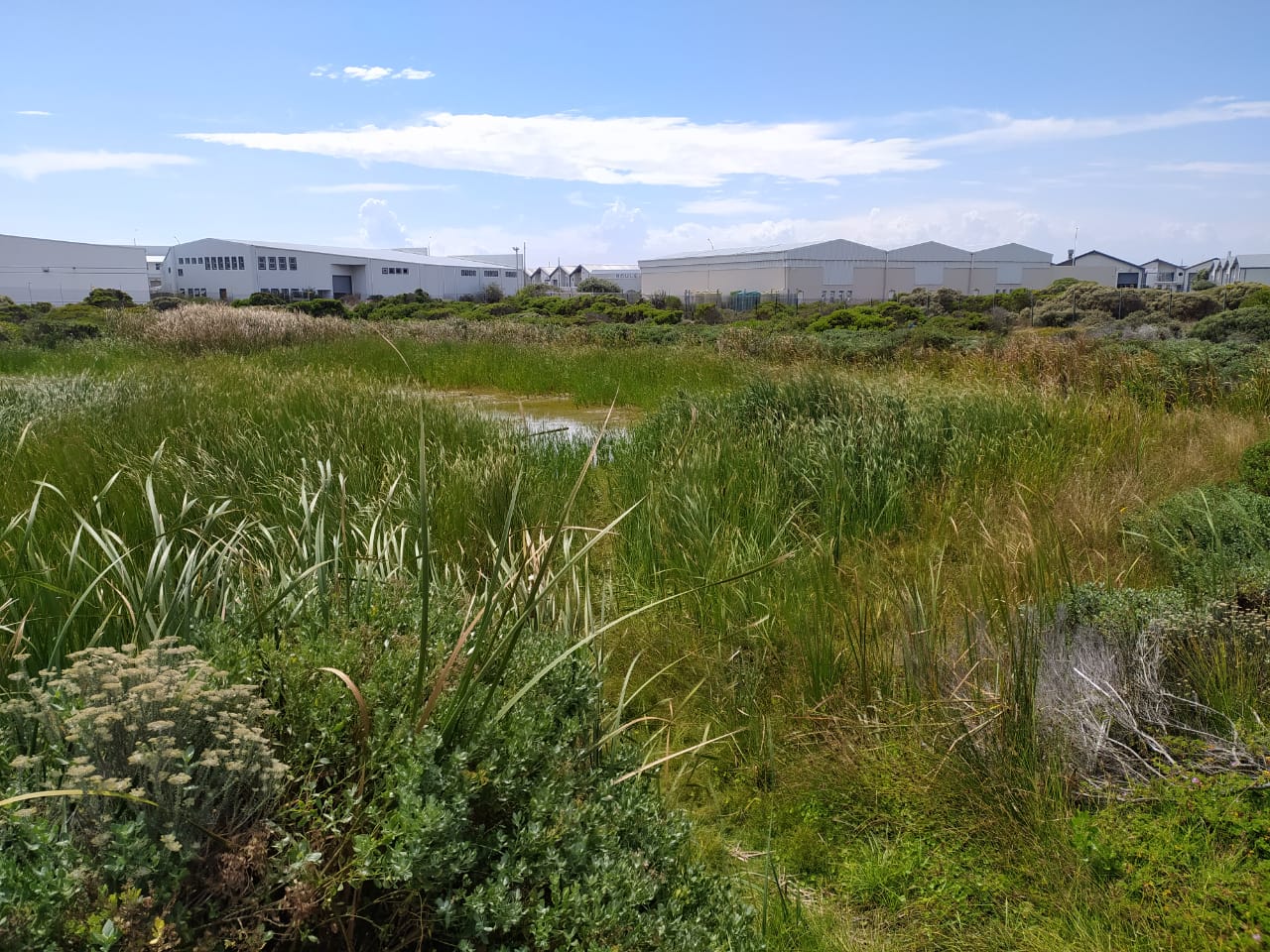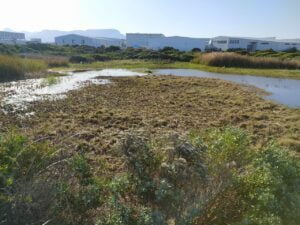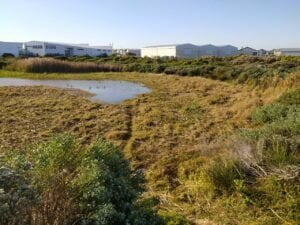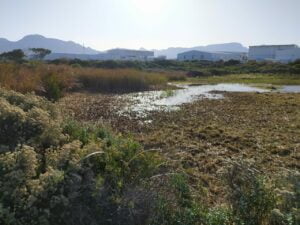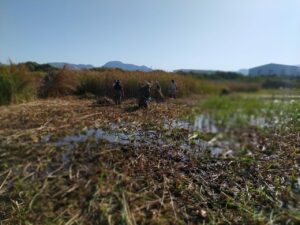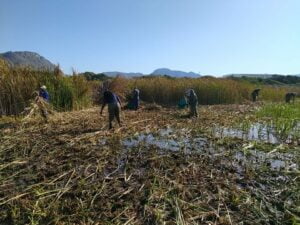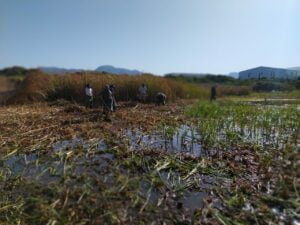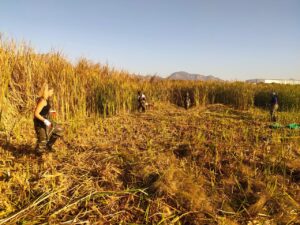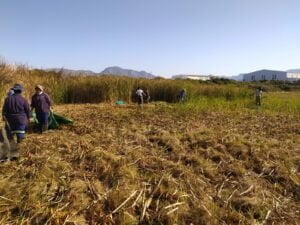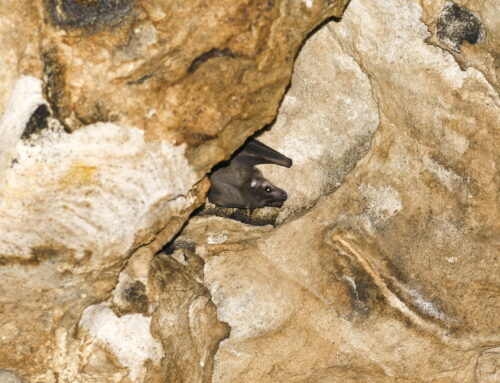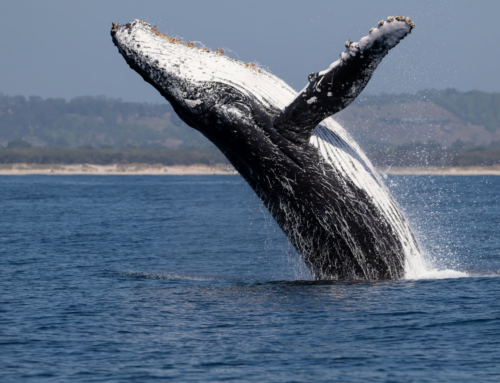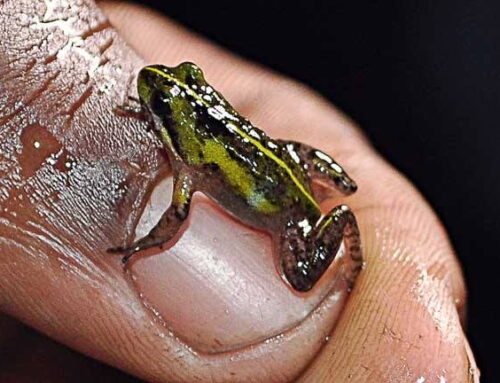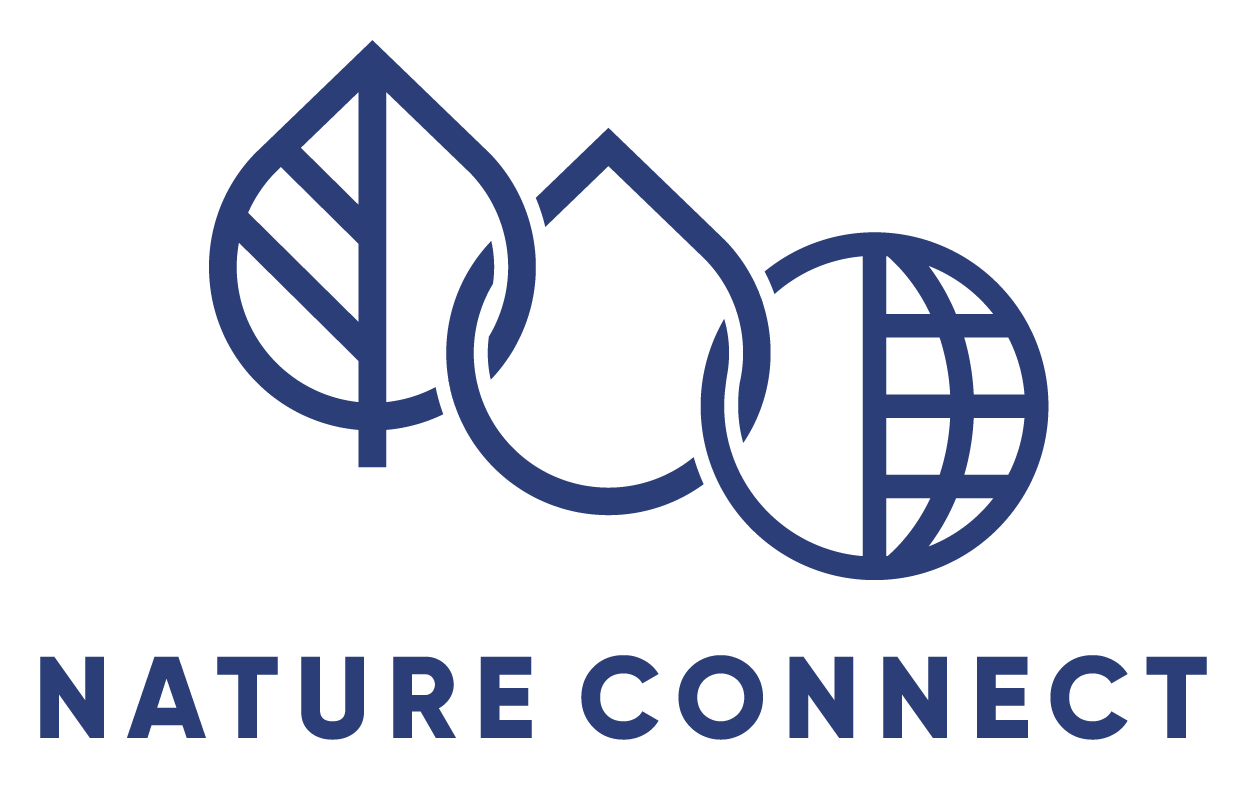On Wednesday 8th, June, the Muizenberg East team gathered, with the assistance of the Nature Connect River Ambassadors and an eager volunteer, to conduct an extensive reed clearing exercise in Soralia Village’s wetland in conjunction with the Society of Ecological Restoration’s (SER) Make a Difference Week.
“Make a Difference Week is an annual week-long event hosted by the Society for Ecological Restoration (SER), a global non-profit organization that works to advance the science, practice, and policy of ecological restoration to sustain biodiversity, improve resilience in a changing climate, and re-establish an ecologically healthy relationship between nature and culture. Through Make a Difference Week, individuals and organisations from across the globe can host and participate in restorative local volunteer events, including weed pulls, seed collections, plantings, and restoration monitoring surveys.”
The management of Typha capensis (bulrush) within this small wetland is an annual activity carried out by the Nature Connect conservation team along with the help of whoever is willing to get their hands dirty and their foreheads a little sweaty. The clearing exercise is essential for various reasons. Bulrushes can become invasive under favourable conditions, and the stand of reeds can eventually close off access to the water surface. Wetlands with surface water are important habitats for aquatic plants and wildlife. For example, waterbirds rely on access to wetlands for breeding opportunities, feeding, and nesting sites. Maintaining this habitat is vital to improving biodiversity at the site. Thus the team makes it their mission every year to ensure that the waterbody at Soralia Village remains accessible to the local indigenous wildlife that requires this habitat for their survival.
The importance of urban freshwater ecosystems is aquatic flora and fauna and the ecological services they provide for our survival. Marine organisms, such as bacteria and fungi, continually break down damaging toxins and nutrients that we flush into our sewage systems (which often overflow into natural water courses when overloaded) or discard directly into our rivers and streams. Other necessary ecological services offered by wetlands include flood prevention, trapping sediments and contaminants, retaining nutrients, and maintaining biodiversity, supporting the ecosystem functions.
The importance of water bodies is beneficial for increased biodiversity and has many positive benefits for humans, especially those living in urban areas. Studies examining the effects of “blue spaces” (natural spaces containing open water) have shown that spending time in such natural environments reduces stress levels and improves one’s mood and general mental health by providing aesthetic enjoyment and the opportunity to connect closely with nature. By contributing through our work in these habitats to promote cleaner air, the chance to sunlight exposure, and to be physically active in these healing spaces epitomises how Nature Connect is changing lives through nature.
23 March Before the team started cutting:
After the cutting:
